Related Research Articles
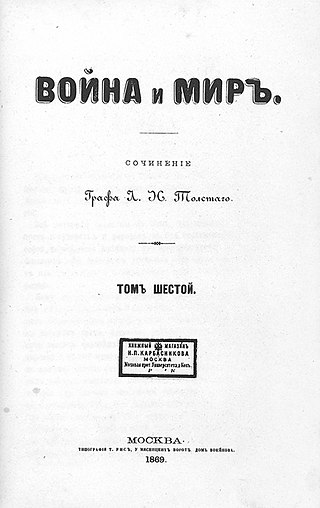
War and Peace is a literary work by the Russian author Leo Tolstoy that mixes fictional narrative with chapters on history and philosophy. It was first published serially, then published in its entirety in 1869. It is regarded as Tolstoy's finest literary achievement and remains an internationally praised classic of world literature.
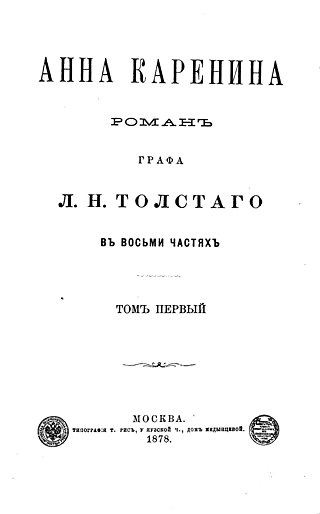
Anna Karenina is a novel by the Russian author Leo Tolstoy, first published in book form in 1878. Widely considered to be one of the greatest works of literature ever written, Tolstoy himself called it his first true novel. It was initially released in serial installments from 1875 to 1877, all but the last part appearing in the periodical The Russian Messenger.
This article presents lists of the literary events and publications in 1862.
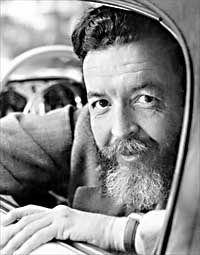
Randall Jarrelljə-REL was an American poet, literary critic, children's author, essayist, and novelist. He was the 11th Consultant in Poetry to the Library of Congress—a position that now bears the title Poet Laureate of the United States.

The Kreutzer Sonata is a novella by Leo Tolstoy, named after Beethoven's Kreutzer Sonata. The novella was published in 1889, and was promptly censored by the Russian authorities. The work is an argument for the ideal of sexual abstinence and an in-depth first-person description of jealous rage. The main character, Pozdnyshev, relates the events leading up to his killing of his wife: in his analysis, the root causes for the deed were the "animal excesses" and "swinish connection" governing the relation between the sexes.
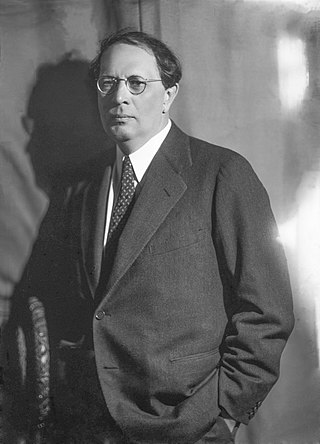
Aleksey Nikolayevich Tolstoy was a Russian writer who wrote in many genres but specialized in science fiction and historical novels.
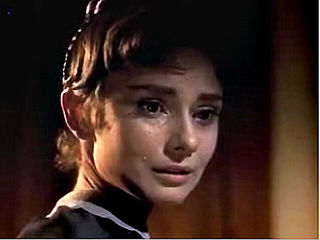
Countess Natalya "Natasha" Ilyinichna Rostova is a central fictional character in Leo Tolstoy's 1869 novel War and Peace. She is the daughter of Ilya Rostov, a loving, kind, and generous nobleman. Natasha is based on both Tanya Behrs, Tolstoy's sister-in-law, and Sophia Tolstaya, Tolstoy's wife.

Departure of a Grand Old Man is a 1912 Russian silent film about the last days of author Leo Tolstoy. The film was directed by Yakov Protazanov and Elizaveta Thiman, and was actress Olga Petrova's first film.

Count Lev Nikolayevich Tolstoy, usually referred to in English as Leo Tolstoy, was a Russian writer who is regarded as one of the greatest authors of all time. He received nominations for the Nobel Prize in Literature every year from 1902 to 1906 and for the Nobel Peace Prize in 1901, 1902, and 1909; the fact that he never won is a major controversy.

Countess Sophia Andreyevna Tolstaya, was a Russian diarist, and the wife of Russian writer Count Leo Tolstoy.
My Life is the published memoirs of Sofia Andreevna Tolstaya, the wife of Leo Tolstoy. Her manuscript lay dormant for almost a century.
Polikúshka: The Lot of a Wicked Court Servant ("Поликушка") is a novella by Leo Tolstoy written in 1860 and first published in 1862. According to Tolstoy's translator, Aylmer Maude, it is the story of a serf who loses some money that belongs to his mistress before hanging himself.
"Lucerne: From the Recollections of Prince Nekhliudoff" is a first person narrative, in the form of diary and based on personal experiences, written by Leo Tolstoy in 1857 and translated into English in 1899 by Nathan Haskell Dole. It takes the form of a travel diary of someone in Lucerne, Switzerland
"Diary of a Lunatic" is a short story by Leo Tolstoy written in 1884.
"Walk in the Light While There is Light" is a short story by Leo Tolstoy written in 1893. According to famed Tolstoy-translators Louise Maude and Aylmer Maude, this story reflects Tolstoy's interest with early Christians, and according to translator Huntington Smith, this is a story about the early times of Christianity.
"The Young Tsar" ("Нечаянно") is a short story by Leo Tolstoy written in 1894. According to Tolstoy's diary, he recalled having titled it "The Dream of a Young Tsar". The introduction that prefaces the story is by Aylmer Maude.
"Posthumous Notes of the Hermit Fëdor Kuzmich" is a short story by Leo Tolstoy written in December, 1905, and then only published in 1912, over the ferocious objections of the tsarist censors and two years after Tolstoy's death. It was never completed.
"There Are No Guilty People" is a short story by Leo Tolstoy written in 1909. According to the Cambridge Companion on Tolstoy, the work is directed against the death penalty. It was incomplete, and when published after Tolstoy's death, resulted in a flood of letters, the reaction mixed. The government tried to censor the work, sentencing one person distributing copies of it to prison.
"The Poor People" is a short story written by Victor Hugo in 1854, translated into Russian by Lidia Veselitskaya, and then rewritten or retold by Leo Tolstoy in 1908. It is the story of a woman, the protagonist, her husband, their five children, and how some romantic feelings survive amidst their struggle in poverty. According to Sophia Tolstoy, in the story, the wife of another fisherman dies while giving birth, and Jeanne must take in the children.

"Church and State" is an article by Leo Tolstoy written in 1886. It was translated to English and then published by the anarchist Benjamin Tucker. In this text, Tolstoy condemns anyone who collaborates with the state in committing a war, and especially condemns the Eastern Orthodox Church for supporting the Tsar's wars when Christianity teaches "Thou Shalt Not Kill."
References
- 1 2 Sofʹi︠a︡ Andreevna Tolstai︠a︡, O. A. Golinenko (1985). O. A. Golinenko (ed.). The Diaries of Sophia Tolstoy. Random House. p. 869.
- 1 2 David Holbrook (1997). Tolstoy, Woman, and Death: A Study of War and Peace and Anna Karenina. p. 55.
- 1 2 Anthony Ferguson (2014). The Sex Doll: A History. McFarland, Incorporated, Publishers. p. 169.
- ↑ Randall Jarrell (2002). Randall Jarrell's Book of Stories: An Anthology. New York Review Books. p. 278.